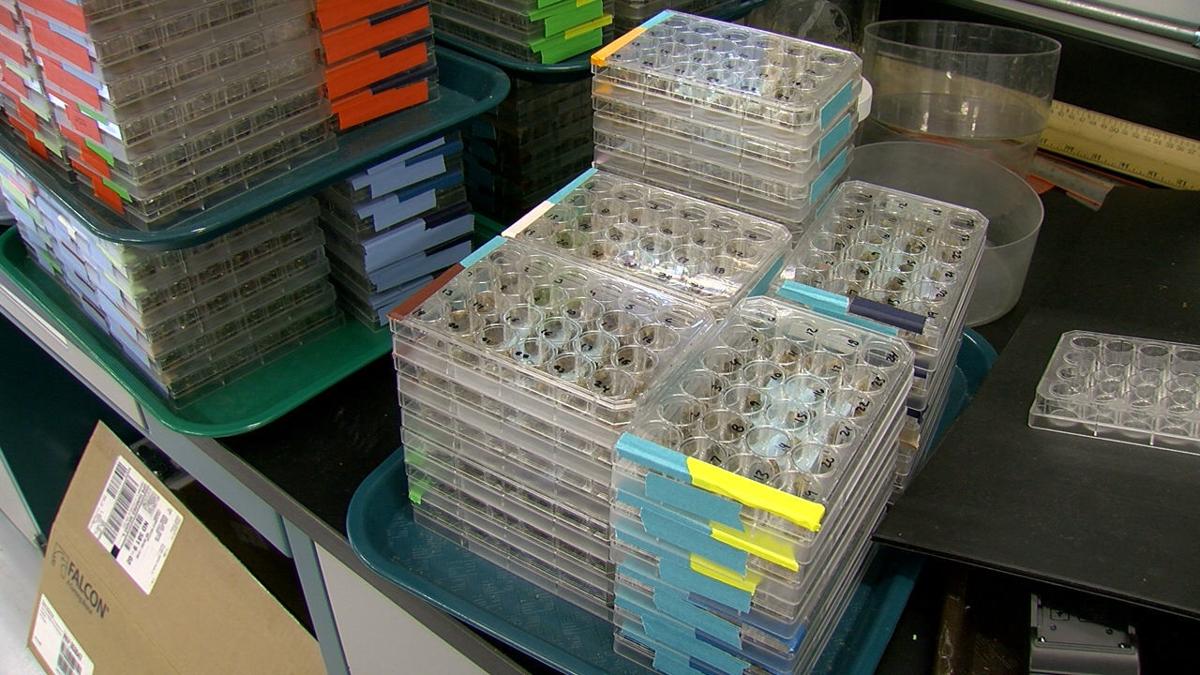FARGO — There’s a buzz at a federal facility at North Dakota State University, and it’s not just coming from insects in the laboratory.
Researchers here have been awarded a nearly $2.9 million federal grant to study how bees survive rough winters and emerge in the spring to reproduce.
Julia Bowsher, associate professor of biological sciences and lead bee researcher at NDSU, said the work could help lessen the demise of bees worldwide and keep agriculture sustainable.
“Everybody is concerned about the plight of the bees right now,” she said.
The NDSU team will collaborate with the University of Wyoming and New Mexico State University, and work alongside U.S. Department of Agriculture researchers in Fargo.
Total funding for the project, made available through the National Science Foundation, is expected to approach $5.7 million through 2022.
Joe Rinehart, USDA research leader for the insects group, said the funding will allow them to study new areas and bring in new technologies. “This is going to be amazing. We already have a good group here working together to make a happier, healthier bee,” he said.
The three different species of bees to be studied as part of the project are all raised for agricultural pollination.
The alfalfa leaf cutting bee is vital to the beef cattle industry because cows eat alfalfa.
“Honeybees don’t like to pollinate alfalfa, so if we want a sustainable cattle industry, that bee is going to be important for that,” Bowsher said.
The blue orchard bee is important to the almond industry, and bumblebees are used to pollinate greenhouse-grown tomatoes, in addition to the work they do in the wild and in people’s backyards, she said.
Understanding how those bees overwinter and how they’re affected by environmental stressors could help make them more sustainable and reliable for use in agriculture. It could also lessen reliance on other pollinators that are facing declines due to multiple factors, including colony collapse disorder and pesticide exposure.
“While honeybees are great, relying on a single species is really not that great an idea,” Rinehart said.
The grant funding will also be used for facility improvements, including renovations of laboratory space in the Biological Sciences Department in Stevens Hall at NDSU. There, scientists and others in the NDSU community will be able to raise organisms in a temperature and humidity controlled environment.
“That’s the capacity we are missing at NDSU that a lot of similar institutions have,” Bowsher said.
The grant will also cover some costs of mentoring students.
Kendra Greenlee, associate professor and chair of the Biological Sciences Department, said it will fund attendance and housing for four students, over the next four years, at a summer undergraduate research program called Pollination Nation.
“It’s important in training the next generation of scientists,” Greenlee said.






